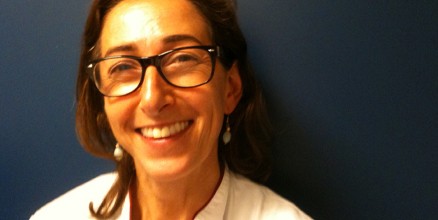
Interview: The sickle cell nurse
Pediatric nurse Joke Schmidt (51) works as a nurse for children with sickle cell disease at the Emma AMC children’s hospital in Amsterdam. It’s a special profession; there aren’t many sickle cell nurses in the Netherlands.
What does a sickle cell nurse do?
Well, a lot. If you come to the hospital for a check-up, you’ll visit the sickle cell nurse first. We do of course how much you’ve grown, your weight, whether you manage to take your medication and whether we can help you with anything. After having seen by the nurse, you usually go and visit the doctor.
What do you do at the special consultation hour?
We’ve got two different consultation hours. On Thursdays, we see sickle cell outpatients. It’s important to know how you’re doing and whether you’re taking your drugs. On Fridays, we see children who we want to pay some extra attention to. For example, children who need to be explained the rules on living with sickle cell disease. This is also the day when we see children who are close to making the switch to the adult outpatient clinic.
Do children adhere to the rules on living with sickle cell disease?
Oh yes, very often. That’s admirable, as the medication has to be taken day in, day out. If they’re unable to abide by the rules, we’ll search for a solution together, as the prescribed medication help to prevent major problems.
What kind of problems do you see?
Children attending the primary school have to take their medication twice a day. This is difficult for both the children and the parents. In addition, liquid medicines often have to be collected at the pharmacy. It’s just a lot of ‘hassle’.
Older children will be doing more and more things without the help from parents. That’s why it is so important for everyone with sickle cell disease that they take responsibility for taking their medication, come to the hospital for their check-ups and that they know when they really need to contact the hospital.
What’s your experience with language barriers?
Usually, we manage but there are situations where it’s difficult. In that case, we use an interpreter over the telephone.
What do patients suffer from the most?
Some children often suffer from painful crises. It's great if you can prevent this by drinking a lot. But sometimes you still get a crisis, despite having done everything you could. That’s just awful. Almost all children find it annoying when the white of their eyes is yellow. Unfortunately, there's nothing we can do against that.
And some children remain small for a long time and that’s also annoying. Fortunately, everyone does eventually start growing in puberty but with sickle cell disease, it happens a bit later compared to other children.
What difficulties do parents experience?
It’s very difficult for parents to see their child in pain. And the fact they always have to take the sickle cell disease into account. You have to drink a lot, dress up, take it easy, eat healthily. It all sounds easy, but children don’t always feel like doing these things. Or school staff that doesn’t understand that a child with sickle cell disease often has to urinate. This is when the AMC school service contacts the school of the child.
And during the night? Do you’ve to urinate more then as well?
Yes, and sometimes children continue to be wet their beds much longer than their peers. This is caused by a combination of deep sleep and kidneys that are performing less well and you’re of course drinking a lot, which is why this often occurs. This causes problems during school camps or sleepovers. It’s a big problem for the parents too, as their sleep is often interrupted as well. All in all, it’s annoying for everyone.
Does the illness stand in the way of children when trying to make friends?
If your best friend knows that you’ve got sickle cell disease, it can be a great help. It’s also advised to let everyone at school know. At least the children in your class will understand why things are sometimes different for the patient.
Do you organise outings for the youngsters?
Once a year we go sailing with a group of children, among other things as well. It’s something we always look forward to and it’s not as if we’re talking about sickle cell all day. We’re just having fun.
You also organise parents’ meetings?
Approximately once a month, we organise a coffee morning for parents. This is when we discuss everything about a certain topic or whatever else the parents want to talk about.
Do you have any tips?
Of course! Lots, in fact. But if I have to choose one it’s this: think of the rules on living with sickle, come to the outpatient clinic for your check-ups and contact us if you have any questions!‹












